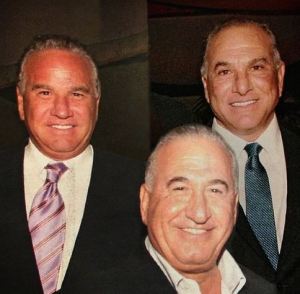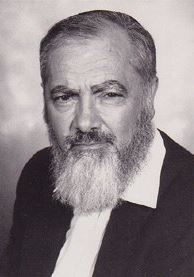The Jordache Brothers
Joseph Nakash (b. 1942) was born in Israel to poor Syrian-Jewish immigrant parents. At 20, having never finished high school, Joseph moved to New York with just $25. He initially worked as a stock boy making $40 a week before taking over as store manager, saving money to bring over his brothers, Raphael and Avraham, from Israel. Soon after they arrived, the trio combined their savings to purchase an appliance store in Brooklyn, which they converted to a retailer selling designer jeans. The store was an instant hit, and in just a few years, they opened three more locations. They soon started producing their own brand of jeans: Jordache (a contraction of their names: Joe, Ralph, his son David, and Avi Nakash). Taking a loan to start a massive ad campaign, the brothers were able to turn Jordache into a household name in jeans. By the mid-80s, their revenues neared half a billion dollars, and the brothers began to expand their business into other areas. They started their own global cargo shipping business, and also acquired 50% of Guess (a deal which ended in 1990 with Jordache keeping the “Gasoline” brand and Guess keeping the “Diesel” brand). By 1995, Jordache began to lose its “high-end” status so the brothers made an agreement with Wal-Mart to sell the jeans as a discount label. This actually turned out to be a blessing, further propelling their sales. At the same time, they began to manufacture jeans for other brands like Tommy Hilfiger, American Eagle, and even Levi’s! Since then, the Nakash brothers have also expanded into airlines, hotels, agriculture, banking, and real estate. Their Israeli olive oil factory produces award-winning oils, and their Tel-Aviv tomato plant supplies Heinz with tomato paste. Most recently, they purchased Miami’s Versace Mansion (outbidding Donald Trump), and the Setai Miami Beach Hotel, among the city’s most expensive and prestigious. Their shipping company also won exclusive rights to operate Israel’s Red Sea port in Eilat. Despite the fact that the Nakash empire is worth over $2 billion, many of the company’s decisions are still hammered out at the family’s Shabbat dinner table.
Words of the Week
One who does not see God everywhere does not see Him anywhere.
– Rabbi Menachem Mendel of Kotzk, The Kotzker Rebbe



